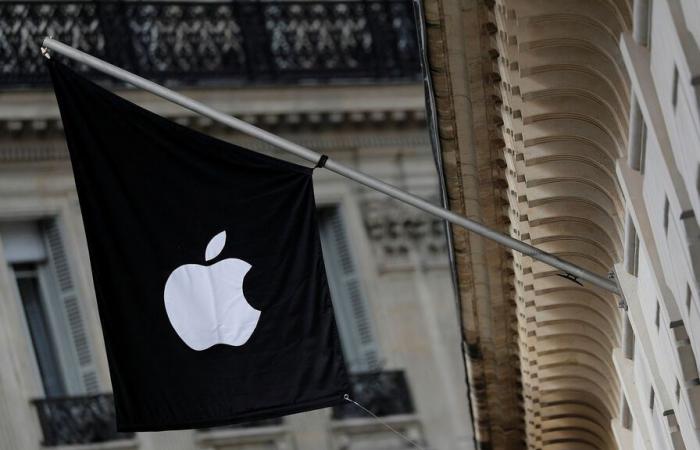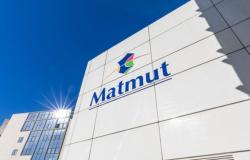
The Democratic Republic of Congo (DRC) has filed criminal complaints against Apple subsidiaries in France and Belgium, accusing the American group of using minerals extracted in conflict zones, also called “conflict minerals”, in its supply chain, lawyers representing the Congolese government told Reuters.
The DRC is a major producer of tin, tantalum and tungsten – nicknamed in English the “3T” – minerals essential for the manufacture of computers and mobile phones. Some artisanal mines, however, are under the control of armed groups involved in massacres of civilians, mass rapes, looting and other crimes, according to UN experts and human rights organizations.
VOS INDICES
source
Apple, which does not directly source raw minerals, says it audits its suppliers, publishes reports and funds initiatives to improve the traceability of minerals. In its 2023 report on conflict minerals, filed with the American financial markets authority – the Securities and Exchange Commission (SEC) – the apple brand claims that none of the smelters or refineries in its chain of supply of “3T” or gold has not financed or benefited armed groups in the DRC or neighboring countries.
Accusations of complicity
Lawyers representing the DRC, however, argue that Apple uses minerals looted from the DRC and “laundered” through international supply chains, which would make the company complicit in crimes committed in the country.
The complaints filed on December 16 with the Paris prosecutor and a Belgian investigating judge notably accuse Apple France, Apple Retail France and Apple Retail Belgium of concealment of war crimes, laundering of conflict minerals, concealment of stolen goods and deceptive marketing practices aimed at reassuring consumers of the cleanliness of their supply chains. “It clearly appears that the Apple group, Apple France and Apple Retail France have perfect knowledge of the systemic offenses on which their mineral supply chain is based,” is written in the French complaint, which cites reports from the UN and human rights organizations on the conflicts in eastern DRC.
Belgian lawyer Christophe Marchand said Belgium bore a particular moral responsibility due to the plunder of Congolese resources during the colonial period under the reign of Leopold II. “It is up to Belgium to try to help the DRC in its desire to implement legal means to put an end to this looting,” he added.
French and Belgian judicial authorities must now decide whether or not to open an investigation and bring criminal charges.
Mining conflicts and violence
Since the 1990s, the mining regions of eastern DRC have been ravaged by incessant conflicts involving armed groups, sometimes supported by Rwanda, and the Congolese army. These conflicts, which have caused millions of deaths and displacement, are fueled by competition for control of minerals. Armed groups finance their activities and buy weapons with export revenues, often via Rwanda, according to the UN and human rights organizations. Rwanda denies any involvement in fraud.
The complaints filed by the DRC challenge the ITSCI program, a certification mechanism funded by the metals industry to help companies carry out due diligence on 3T suppliers in the DRC, Rwanda, Burundi and Uganda. Congolese lawyers claim that ITSCI is discredited, notably by the Responsible Minerals Initiative (RMI), of which Apple is a member, and that Apple is using it as a pretext to falsely present its supply chain as clean.
In 2022, RMI announced that it would remove ITSCI from its list of approved traceability schemes. In July 2024, it extended this suspension until 2026, citing the lack of field observations in high-risk areas and the lack of response to the escalation of violence in the province of North Kivu, a key region for the exploitation of 3T.
Last July, the US State Department expressed concerns in a statement about the role of the DRC's illicit mineral trade in financing conflicts.
Robert Amsterdam, a U.S.-based lawyer who represents the DRC, called the French and Belgian complaints “the first salvo” against a major technology company. According to him, these are the first criminal complaints filed by the Congolese state against a technological giant.
Apple rejects accusations
Apple on December 17 strongly rejected accusations that it uses minerals mined in conflict zones in its products, saying it had asked its suppliers earlier this year to no longer source minerals from the Democratic Republic of Congo (DRC). and in Rwanda. In a press release sent to Reuters, the American group said it had asked its suppliers to no longer obtain tin, tantalum and tungsten – known as “3T” in English – in the DRC and Rwanda due to the escalation conflicts in the two countries.
With Reuters (Sonia Rolley)
Selected for you






